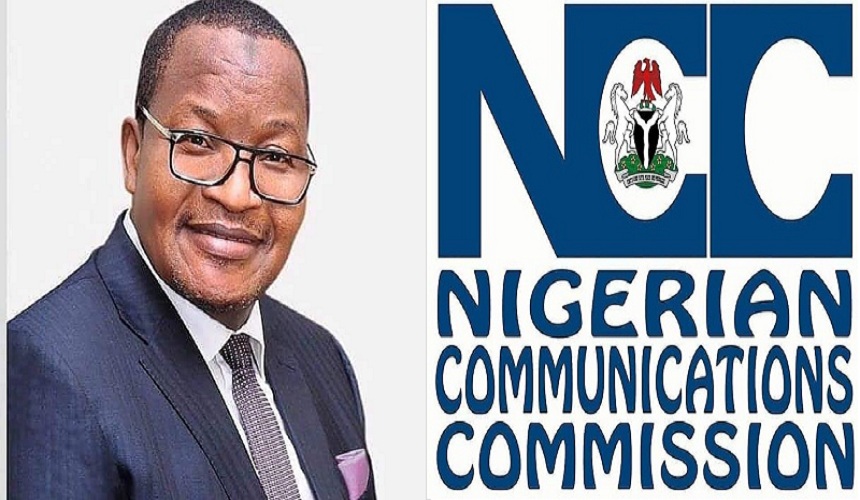Nigeria’s telecom regulator, the Nigerian Communications Commission (NCC) has in addition to the policy on renewable energy in the telecom sector, put in place laudable initiatives geared towards protecting the Nigerian environment, Digital Times Nigeria can report.
For instance, the Commission has in recent years introduced a regulatory framework on infrastructure sharing and collocation among the licensees which the Commission admitted, has encouraged operators to fully maximise their already-deployment infrastructure.
Speaking at the 2023 World Consumer Rights Day celebration held in Abuja, NCC’s Executive Vice Chairman (EVC), Prof. Umar Garba Danbatta pointed out that by sharing infrastructure, some operators do not need to entirely build a telecoms site in an area where another operator had deployed one.
“With the challenge of inadequate public electricity supply in Nigeria, telecom companies rely on diesel-powered generators to keep their telecom sites live round-the-clock. A regulatory framework such as infrastructure sharing, and collocation is helping in this regard and the Commission has recorded appreciable adoption of this regulation,” Danbatta elaborated.
Another regulatory initiative embarked upon by the NCC for a clean Nigerian environment is the Commission’s Type Approval Regulations, which promotes the NCC’s official authorisation prior to the use or supply of an Equipment Type in Nigeria.
“Our Type Approval of devices factors in energy efficiency, among others, which ensures a reduction of power consumption. It also ensures that Radio Frequency devices used in Nigeria operate effectively, without causing harmful interference and otherwise comply with the Commission’s technical requirement prior to importation or marketing,” the NCC boss said.
Yet, the NCC-organised annual tech innovation competitions for young innovators in Nigeria, also make considerations for inventions that address the challenges of renewable energy.
The NCC EVC noted at the 2023 World Consumer Rights Day celebration in Abuja, that some of the entries submitted in this regard are in the process of being commercialized as the innovators are seeking investors to make their discoveries available to the public.
“The Commission will continue to support research and innovations that contribute to transitioning to renewable energy sources,” he said.
Also connected to NCC’s regulatory efforts in dealing with issues of sanitizing the Nigerian environment were its efforts in 2019 to commence activities that will result in the formulation of a Regulation on E-Waste in Nigeria.
It is obvious like the EVC noted, that today, the global concern for the regulation of e-waste is two-pronged. First, is the acute awareness of the hazardous properties and the potential risk to human health, as well as their capacity to degrade the environment.
Secondly, is the business case and vast potential for wealth creation in recycling e-waste into more benign and productive uses.
But in line with its regulatory mandate and to keep pace with efforts at managing e-waste-related issues, in a manner that reduces cases of indiscriminate burning of electronic devices with the potential for increased carbon emission in the environment, the Commission has been working, with other relevant agencies, to develop Regulations on E-waste.
The Regulations, according to Danbatta, will represent a holistic intervention aimed at providing clarity and delimiting the responsibilities of various stakeholders in the e-waste value chain within the telecommunications industry, adding that while the proposed Regulations are industry-specific, they, nonetheless, key into other initiatives at national and international levels.
The EVC promised that in the course of the year, the Commission’s Consumer Affairs Bureau (CAB) will sensitize telecom consumers about these interventions aimed at making the environment better for all of humanity.
“The CAB will carry this out as part of its Consumer Education mandate, with a significant part of this effort dedicated to providing information that equips the consumer to thrive in a world that has embraced digital finance.
“Through its outreach programmes, which have continued to re-tool to reflect existing realities and trends, the CAB will use its consumer-centric initiatives such as the Telecom Consumer Parliament (TCP), Telecom Consumer Town Hall on Radio (TCTHR), Telecom Consumer Conversations (TCC) as well as social media platforms and Consumer Portal to sensitize consumers on how renewable energy benefits them and their role in achieving industry transition to it in the interest of the environment,” Danbatta pledged.
He informed his audience that the Bureau will develop and produce various consumer education materials such as Flexi and Roll-up Banners, and Handbills, and update its Consumer Handbook to include the message about renewable energy.
Danbatta assured that as the global community celebrates World Consumer Rights Day (WCRD) 2023, the theme of this year will form part of the consideration of the Commission’s regulatory mandate and reaffirmed the Commission’s commitment to responsibly use the world’s resources, including protecting the environment by supporting the industry, to transition to renewable energy.

